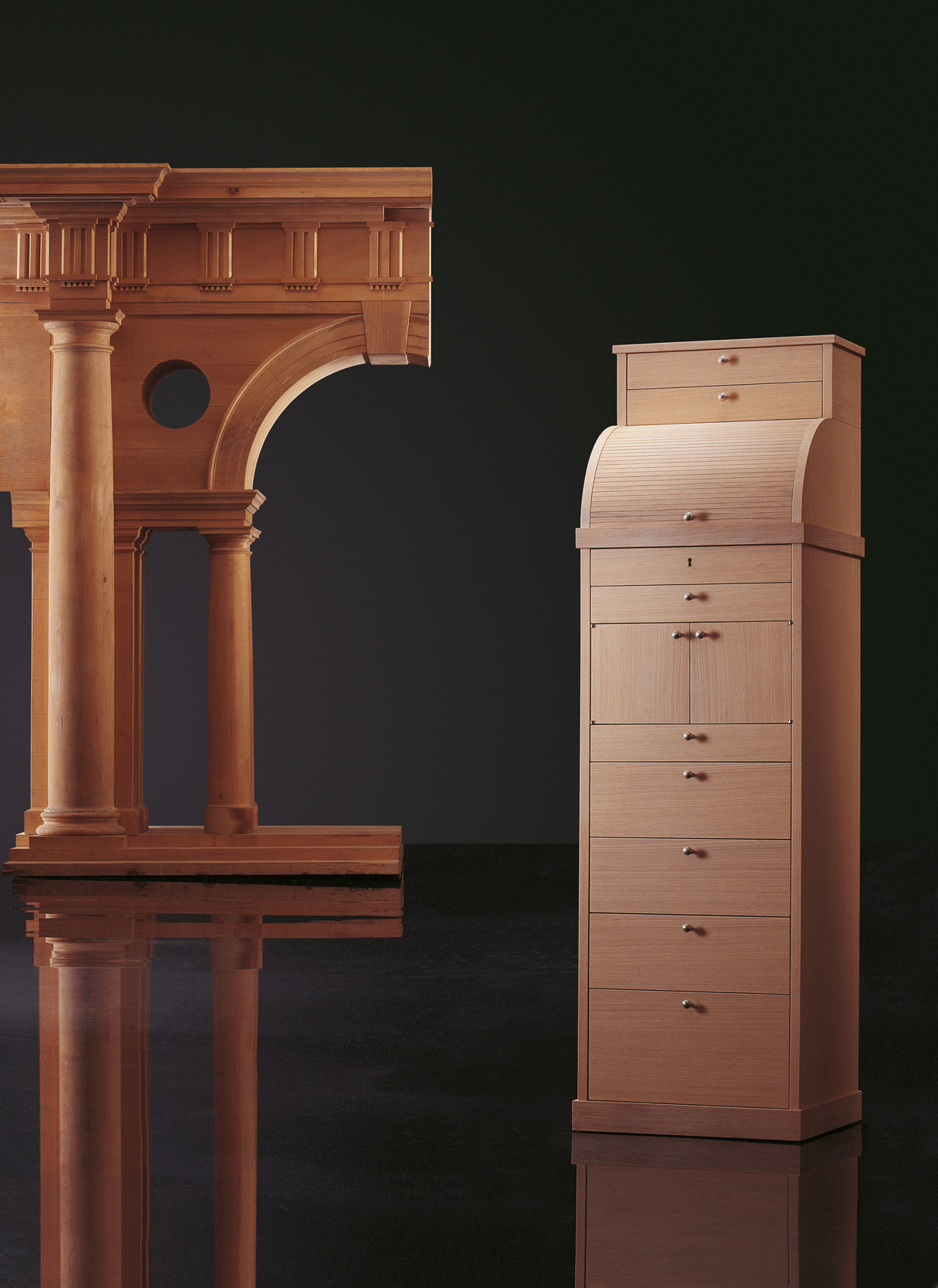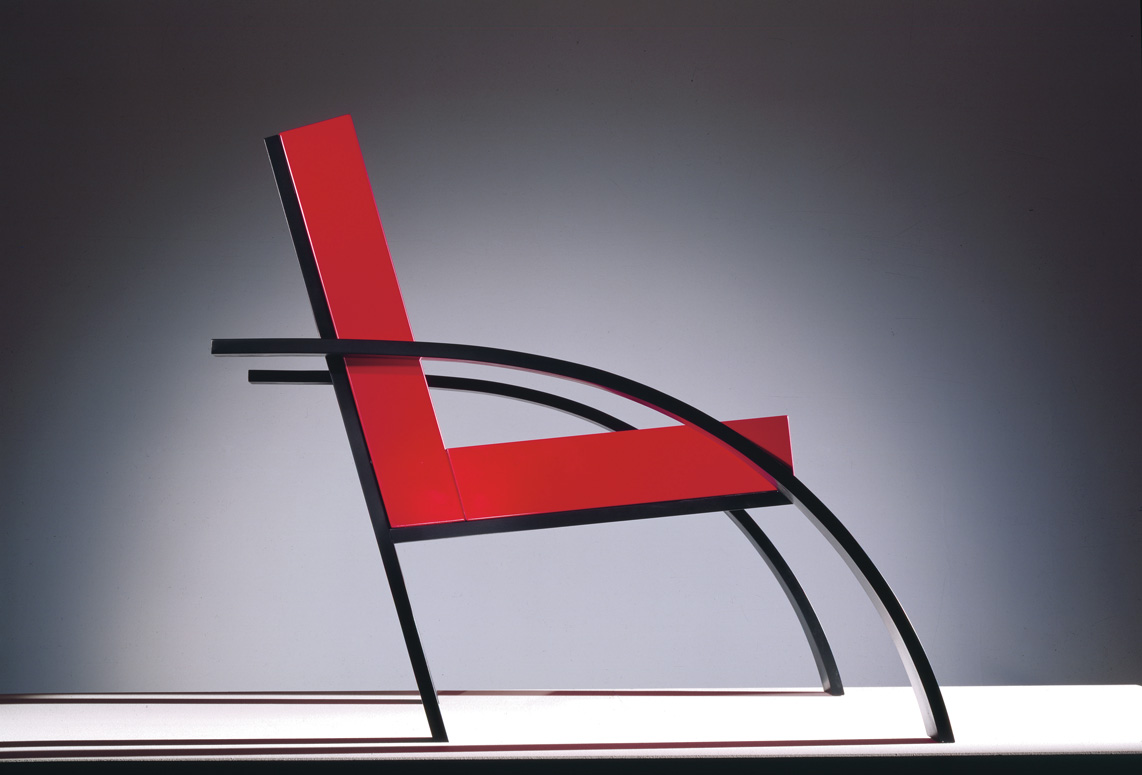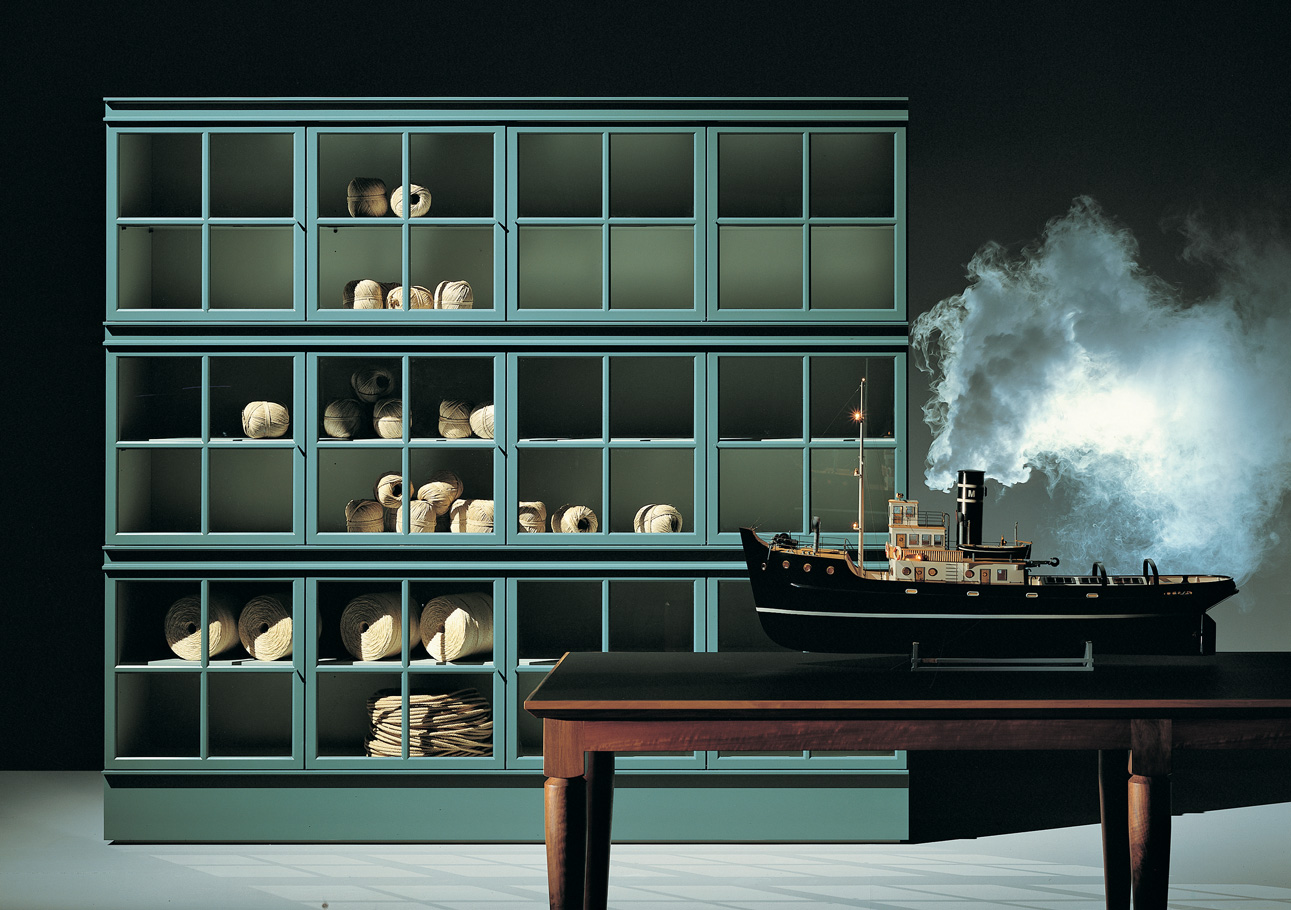Search for articles, topics or more
browse by topics

Search for articles, topics or more

Italian architect and designer Aldo Rossi had a passion for what he saw as the small constructions that fill our homes. He viewed these objects as containers for memories and affections – poetic forms that convey “ordinary exceptionality”.
A giant cutaway section of a building greeted visitors as they ascended the grand staircase of the Palazzo dell’Arte during the 17th Milan Triennale in 1986. But few realised that this installation – Italian architect and designer Aldo Rossi’s Teatro Domestico (Domestic Theatre) – had been placed in the location where Allied bombing raids had laid bare the interiors of the Palazzo in 1943.
 Carteggio (1987), Aldo Rossi, Molteni&C
Carteggio (1987), Aldo Rossi, Molteni&C
Rossi created an effect of spatial distortion in the interior of Teatro Domestico’s three-storey dwelling, with rooms that were smaller than the structure of the house implied – filled with items of furniture and objects of varying scales, testifying to Rossi’s passion for unusual combinations. In this installation, the home could be seen as a theatre – each room a stage set, with tables, chairs and other objects providing the props for the representation of daily family life. Domestic objects have undergone a transformation here, acquiring a kind of ‘ordinary exceptionality’.
For Rossi, the story behind the objects was that of personal memory – his and our own – ranging from the domestic furniture of childhood to the familiar interiors of offices and studios, the clamour of schools or the silence of churches. Impressions taken from his great storehouse of memories were turned into projects through drawings, models and simulations.
 Parigi (1989), Aldo Rossi, UniFor
Parigi (1989), Aldo Rossi, UniFor
Theatrical effects were then reinforced through a process of estrangement typical of Rossi’s work, with slight deformations, strong colours and disorientations that were both modern and evocative of times past.

Impressions taken from his great storehouse of memories were turned into projects through drawings, models and simulations.
Rossi’s main workshop for creating furniture and products – coffee pots, clocks, lamps, etc – was the Molteni factory in Giussano, northern Italy. There, along with his lifelong friend, the inspired designer Luca Meda, and the company’s craftsmen, these poetic designs blossomed into details, joints, articulations and mouldings. The names of the objects reflect Rossi’s memories and inspirations, and sometimes resonate with the object’s purpose – Carteggio (Correspondence) for a desk or Teatro (Theatre) for a small armchair – or references to places, such as Milano (Milan) or Parigi (Paris) for chairs and armchairs, or Elba for a walk-in wardrobe. Far from the sterile neutrality of many contemporary designs, within every space they suggest the repetition of habitual gestures and the reassurance of time-honoured skills.

Kitchens are everyday spaces that exist to meet an immediate functional goal. When well designed, they are highly calibrated to support the convenient preparation of food.
In the centre of Milan, a short walk from the duomo, is Villa Necchi Campiglio, designed by Piero Portaluppi (1888-1967) for the Necchi Campiglio family between 1932 and 1935.
How we understand the world of design can depend on the means by which we engage with the subject.
Thanks for your registration.